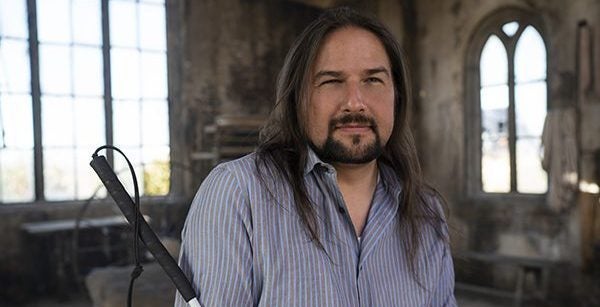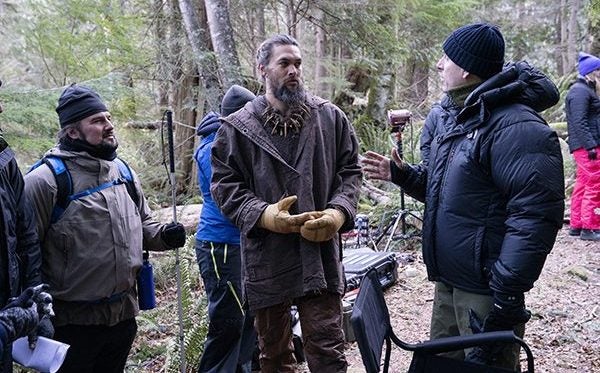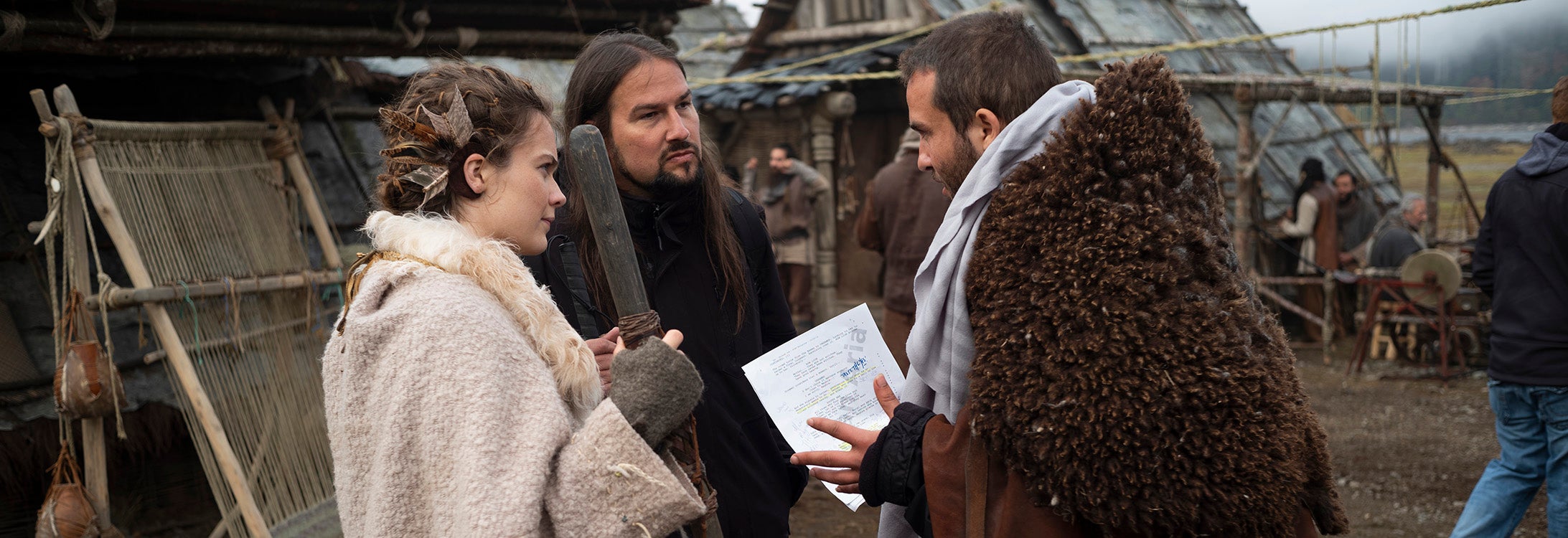AUTHENTIC PORTRAYAL
Communication alumnus uses his experience to help fantasy series “See”

Strechay, who lost most of his eyesight to a congenital condition during his freshman year at ECU, is the show’s associate producer, blindness consultant and sometimes actor.
When the Apple TV + fantasy series “See” needed a television consultant and producer, it reached out to East Carolina University School of Communication alumnus Joe Strechay.
“See” is set 600 years in the future where everyone — except newborns — is sightless due to a pandemic virus.
Forty-one-year-old Strechay, who lost most of his eyesight to a congenital condition during his freshman year at ECU, is the show’s associate producer, blindness consultant and sometimes actor. He implemented the on-camera techniques used by performers for realistic interaction, movement and communication — even working with stunt actors on how someone who is blind would fight.
In the world of “See,” communicating without vision can be problematic. As it is in real life.
“There are a lot of portrayals out there that don’t show people with disabilities or people who are blind or low vision as competent human beings,” Strechay said in an interview with CNET. “Getting to show blindness and see yourself in a different way is so powerful. That’s something our show did.”

Strechay, left, stands with actor Jason Momoa and director Anders Engström on set.
Many of the actors and crew on “See” in addition to Strechay are blind or low vision. Strechay instructed them with practical knowledge. “Everything you see actors do who are blind or low vision, I did,” he said. “Climbing down a waterfall, I did that. Navigating rocks, I did that.”
Strechay was a consultant to the Netflix hit series “Daredevil” from its inception in 2014. Strechay taught lead actor Charlie Cox — who portrayed Matt Murdock, a blind lawyer who at night becomes a superhero crime fighter — the subtle movements he needed to be convincing in the role.
Cox said the hardest acting lessons came when Strechay blindfolded him and led him on brisk walks down busy New York City sidewalks. “He was kind of freaked out but he didn’t tell me that initially,” Strechay said. “I just wanted to show him how I travel.”
Strechay may be unique in Hollywood.
“I don’t know that there are other Joes out there,” said Eric Bridges, executive director of the American Council of the Blind in a CNET interview. “He’s himself blind so there’s authenticity there.”
Strechay came to ECU from New Jersey with his twin brother, Daniel Strechay. He and his brother pledged Sigma Pi and were active in Greek life. Joe majored in communication and Daniel majored in political science, both graduating in 2001. Daniel is now the global director of outreach and engagement for the Roundtable on Sustainable Palm Oil, where he is working on stakeholder engagement and communications for the organization.
Series receives inclusiveness award
“See” was honored in June by the Ruderman Family Foundation disability rights organization with the “Seal of Authentic Representation,” which recognized four films or television series that demonstrate a commitment toward full inclusiveness in popular culture.
This marks the foundation’s fourth Seal of Authentic Representation award. On “See,” actors Marilee Talkington and Bree Klauser both have legal blindness in a series set in a future where all humans have lost their sense of sight, until twins are born who have sight.
“We are gratified to see the ongoing progress in the realm of authentic representation in entertainment, including from the latest recipients of our Seal of Authentic Representation,” said Jay Ruderman, president of the Ruderman Family Foundation. “At the same time, we hope that these recognitions continue to inspire broader institutional change in Hollywood, motivating more producers and directors to not only audition but eventually cast actors with disabilities — especially in the roles that they are uniquely qualified to play.
“For far too long, disability has been glaringly left out of Hollywood’s conversation surrounding diversity, and inclusive and authentic casting decisions play a significant role in righting this historical wrong.”
After ECU graduation and two years of work, Joe enrolled in graduate school at Florida State University, where he studied teaching children who are blind, orientation and mobility, and an emphasis on transition from school to work. He then worked with the American Foundation for the Blind from 2009-2015 as program manager for CareerConnect, an AFB website that offered free resources and tools for students and job seekers with vision loss.
Strechay credits his ECU School of Communication experience for many of his insights.
“ECU introduced me to the media, and how to work in and around it,” he said. “Dr. Linda Kean and Dr. Kelly Albada shaped my perspective on media and minority groups. Their lectures changed how I viewed media.
“I still communicate with Dr. Kean, as she taught me so much about the portrayal and migration of minority characters in media.”
Strechay spends his time producing television and film, consulting with the American Printing House for the Blind, speaking to youth with disabilities and, he said, “living the good life” with his wife, Jennifer, in Pennsylvania.
Steve Tuttle, formerly of ECU News Services, and Shara Tibkin, CNET, contributed to this story.
